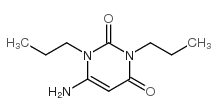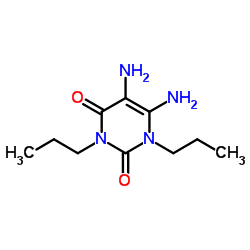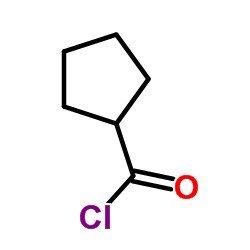DPCPX

DPCPX structure
|
Common Name | DPCPX | ||
|---|---|---|---|---|
| CAS Number | 102146-07-6 | Molecular Weight | 304.38700 | |
| Density | 1.195g/cm3 | Boiling Point | 535.1ºC at 760mmHg | |
| Molecular Formula | C16H24N4O2 | Melting Point | 178°C | |
| MSDS | Chinese USA | Flash Point | 277.4ºC | |
| Symbol |

GHS07 |
Signal Word | Warning | |
Use of DPCPXDPCPX (PD 116948), a xanthine derivative, is a highly potent and selective Adenosine A1 receptor antagonist, with a Ki of 0.46 nM in 3H-CHA binding to A1 receptors in rat whole brain membranes[1][2][3]. |
| Name | 8-Cyclopentyl-1,3-dipropylxanthine |
|---|---|
| Synonym | More Synonyms |
| Description | DPCPX (PD 116948), a xanthine derivative, is a highly potent and selective Adenosine A1 receptor antagonist, with a Ki of 0.46 nM in 3H-CHA binding to A1 receptors in rat whole brain membranes[1][2][3]. |
|---|---|
| Related Catalog | |
| Target |
Ki: 0.46 nM (3H-CHA binding to A1 receptors in rat whole brain membranes); 340 nM (3H-NECA binding to A2 receptors in rat striatal membranes)[2]. |
| In Vivo | DPCPX (PD 116948) ( 0.1, 0.3 and 1.0 mg/kg i.v. ) produces significant dose-related increases (P<0.05) in urine volume and in urinary sodium, potassium and chloride excretion[3]. |
| References |
[3]. POSTER COMMUNICATIONS Part II. Br J Pharmacol. 1989 Jul; 97(Suppl): 496P–535P. |
| Density | 1.195g/cm3 |
|---|---|
| Boiling Point | 535.1ºC at 760mmHg |
| Melting Point | 178°C |
| Molecular Formula | C16H24N4O2 |
| Molecular Weight | 304.38700 |
| Flash Point | 277.4ºC |
| Exact Mass | 304.19000 |
| PSA | 72.68000 |
| LogP | 2.36390 |
| Appearance of Characters | solid | white |
| Vapour Pressure | 1.59E-11mmHg at 25°C |
| Index of Refraction | 1.564 |
| Storage condition | Store at RT |
| Stability | Store tightly sealed at RT; Solutions at 4 deg C for several days |
| Water Solubility | DMSO: >10 mg/mL |
| Symbol |

GHS07 |
|---|---|
| Signal Word | Warning |
| Hazard Statements | H315-H319-H335 |
| Precautionary Statements | P261-P305 + P351 + P338 |
| Personal Protective Equipment | dust mask type N95 (US);Eyeshields;Gloves |
| Hazard Codes | Xi: Irritant; |
| Risk Phrases | R36/37/38 |
| Safety Phrases | S26-S36 |
| RIDADR | NONH for all modes of transport |
| WGK Germany | 3 |
| HS Code | 2933990090 |
|
~% 
DPCPX CAS#:102146-07-6 |
| Literature: Synthesis, , # 7 p. 1123 - 1126 |
|
~% 
DPCPX CAS#:102146-07-6 |
| Literature: Journal of Medicinal Chemistry, , vol. 34, # 4 p. 1431 - 1435 |
|
~% 
DPCPX CAS#:102146-07-6 |
| Literature: Journal of Medicinal Chemistry, , vol. 34, # 1 p. 466 - 469 |
|
~% 
DPCPX CAS#:102146-07-6 |
| Literature: Journal of Medicinal Chemistry, , vol. 34, # 4 p. 1431 - 1435 |
|
~% 
DPCPX CAS#:102146-07-6 |
| Literature: Synthesis, , # 7 p. 1123 - 1126 |
| HS Code | 2933990090 |
|---|---|
| Summary | 2933990090. heterocyclic compounds with nitrogen hetero-atom(s) only. VAT:17.0%. Tax rebate rate:13.0%. . MFN tariff:6.5%. General tariff:20.0% |
|
Regulatory T cell-derived adenosine induces dendritic cell migration through the Epac-Rap1 pathway.
J. Immunol. 194(8) , 3735-44, (2015) Dendritic cells (DC) are one target for immune suppression by regulatory T cells (Treg), because their interaction results in reduced T cell stimulatory capacity and secretion of inhibitory cytokines ... |
|
|
Increased tonic cannabinoid CB1R activity and brain region-specific desensitization of CB1R Gi/o signaling axis in mice with global genetic knockout of monoacylglycerol lipase.
Eur. J. Pharm. Sci. 77 , 180-8, (2015) In mammalian brain, monoacylglycerol lipase (MAGL) is the primary enzyme responsible for terminating signaling function of the endocannabinoid 2-arachidonoylglycerol (2-AG). Previous in vivo studies w... |
|
|
Endothelial dysfunction impairs vascular neurotransmission in tail arteries.
Neurochem. Int. 80 , 7-13, (2015) The present study intends to clarify if endothelium dysfunction impairs vascular sympathetic neurotransmission. Electrically-evoked tritium overflow (100 pulses/5 Hz) was evaluated in arteries (intact... |
| 8-Cyclopentyl-1,3-dipropyl-1H-purine-2,6(3H,7H)-dione |
| 8-cyclopentyl-1,3-dipropyl-7H-purine-2,6-dione |
| MFCD00055117 |





 CAS#:120362-53-0
CAS#:120362-53-0